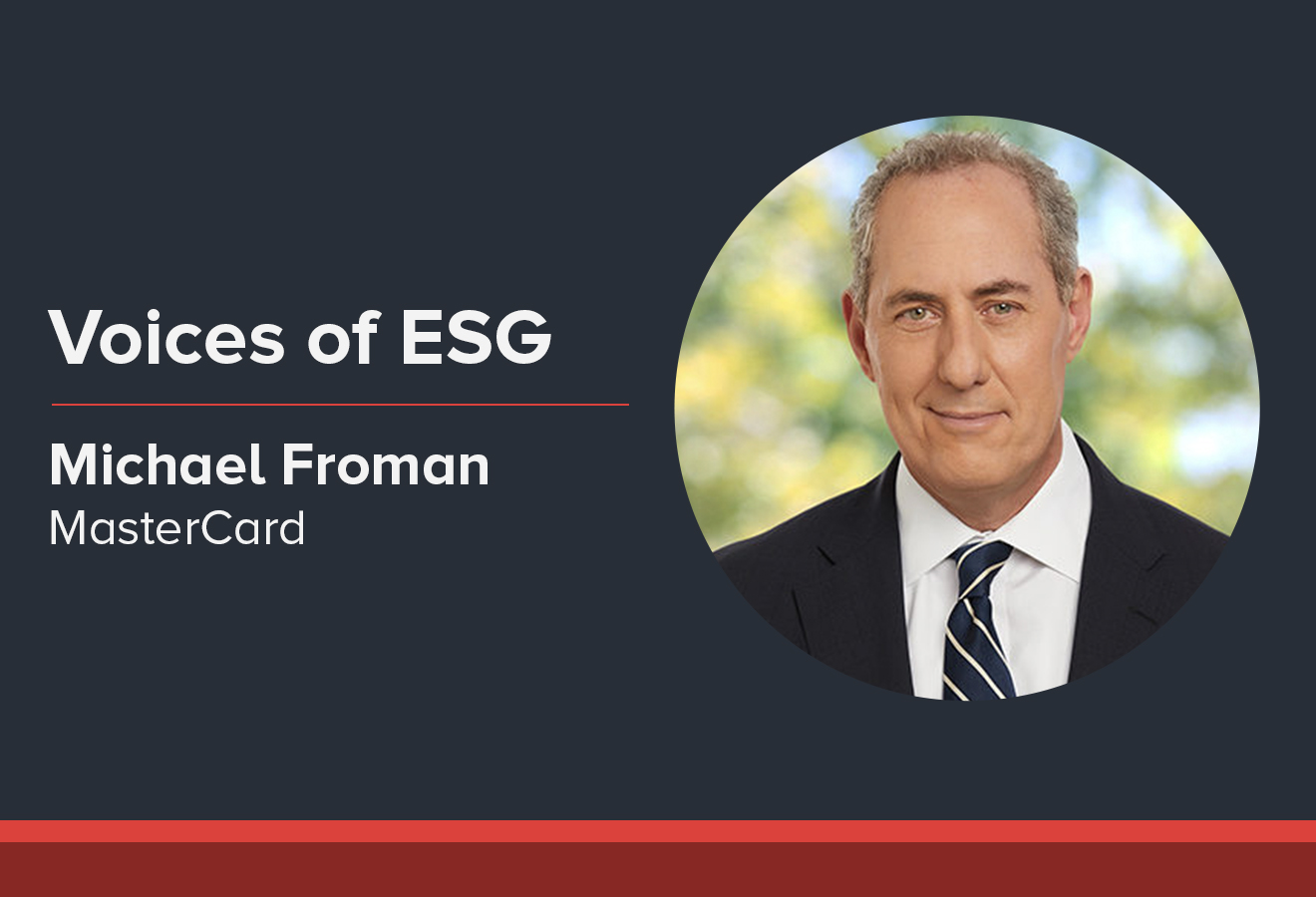In this Q&A, board member Betsy Atkins interviews Michael Froman, Vice Chairman and President, Strategic Growth for Mastercard, about how the company will measure its impact of ESG initiatives.
Q: Can you share with the director community some insights on Mastercard's approach and philosophy?
A: At Mastercard, "doing well by doing good" is deep in our DNA, rooted in our work on financial inclusion over the last decade. We've committed $500 million to inclusive growth, as well as $500 million in products, services, technology and financial support to address racial equity issues in the United States and $250 million in such resources to support small businesses around the world.
We recognize the value in having companies measure and disclose meaningful and relevant environmental, social and governance (ESG) matters in a way that facilitates accountability and comparability, furthers stakeholder dialogue and incentivizes companies to make ESG initiatives a key part of their overall business strategy.
Q: For ESG programs to be impactful, they must be measured. Can you share a bit on how Mastercard measures the effectiveness of their programs to know the program is working as well as for the various stakeholders i.e. your investors, customers, employees and communities?
A: Absolutely. Currently, we have aligned our ESG reporting to the frameworks that are most accepted — Sustainable Accounting Standards Board (SASB) and the Global Reporting Initiative (GRI).
Mastercard has a deep commitment to environmental stewardship and we are the first in the payments industry to receive approval from Science Based Targets initiative for our updated emissions target. We have also joined RE100 and formalized our commitment to continue using 100% renewable energy across all of our global operations.
Five years ago, we committed to bring 500 million unbanked individuals into the financial system. We measured that commitment like any other corporate KPI and, through programs in 120 countries, achieved the goal nine months ahead of schedule. We have doubled down with a commitment to bring 1 billion individuals. 50 million micro and small businesses and 25 million women-owned or run businesses into the digital economy by 2025, and we have also launched the Priceless Planet Coalition, pledging to plant 100 Million trees over the next five years with various partners. We are realizing these goals and commitments by implementing policies and programs that can be measured in both quantitative and qualitative ways.
Q: Michael you and the Mastercard organization put a lot of time and focus on ESG, can you share your recommendations on how a company at a high level can better focus and capture data on the 'S' part of ESG?
A: We think there has been some very good work by the WEF and the Big Four on improving ESG metrics. Our view is that the 'S' metrics are the least well-developed and don't adequately measure the role companies can play in having positive social impact. With further work, they could help incentivize the kind of company actions we'd all like to see.
Ultimately, measuring social impact, particularly in a consistent way across companies and sectors and in a manner that can be audited, is much more difficult than, let's say, measuring the size of one's carbon footprint or one's diversity and inclusion metrics.
And yet, we want companies to be as incentivized to do social impact work as they are to do environmental work. It might be harder to measure, but it matters just the same. Each company should and will focus on aspects of community and societal impact that is not only relevant to their business model, but capable of being integrated into their corporate strategy and pursued on a commercially sustainable basis. That's the best way to ensure impact at scale over the long run.





